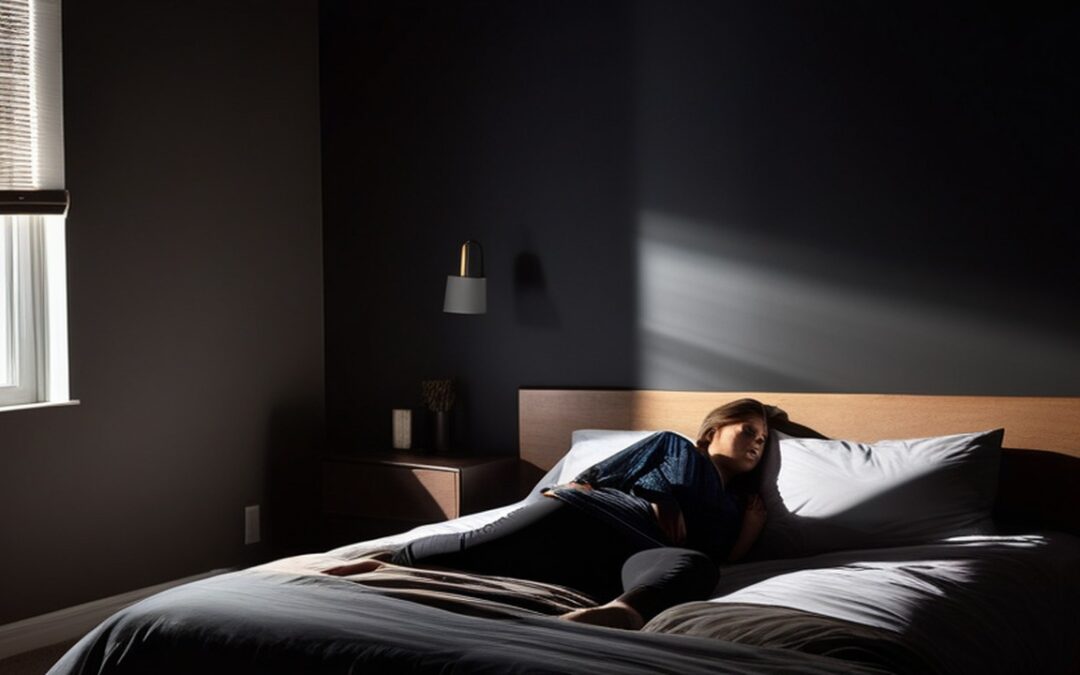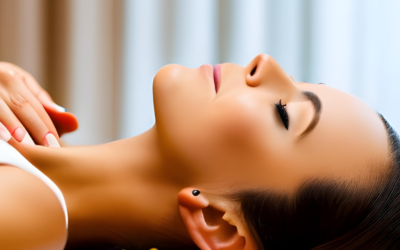Explore the rich world of black tea—from Assam to Darjeeling, brewing tips, health benefits, and cultural traditions, one cup at a time.

Understanding the Link: Anxiety, Depression, and Worsening Sleep Apnea
Understanding the Link: Anxiety, Depression, and Worsening Sleep Apnea
What is sleep apnea?
Imagine trying to sleep but you keep stopping breathing, or your breaths barely scratch the surface—that’s what having sleep apnea is like. These pauses can last for a few seconds to a minute and occur multiple times throughout the night, disrupting the normal sleep cycle.
Sleep apnea splits into three distinct types: obstructive, where your airway collapses or gets blocked; central, which involves the brain failing to signal your muscles to breathe; and complex syndrome, a combination of the two.
Obstructive sleep apnea, central sleep apnea, and complex sleep apnea syndrome. Obstructive sleep apnea, the most common type, occurs when the muscles in the back of the throat fail to keep the airway open. This leads to a blockage and prevents air from entering the lungs.
Understanding anxiety and its impact on sleep apnea.
Anxiety, with its grip of constant worry and fear, can loom large over your day-to-day life. It is a normal response to stress, but for some individuals, anxiety can become chronic and interfere with daily life.
Anxiety and sleep apnea are closely linked, with each condition having an impact on the other. Anxiety can worsen sleep apnea symptoms by increasing muscle tension and making it harder for the airway to stay open during sleep.
Moreover, the surge of stress hormones that anxiety sparks off can mess with your sleep patterns and worsen sleep apnea.
The relationship between depression and sleep apnea.
Depression often shows up as a heavy blanket of sadness, stealing the joy from activities once loved and draining the drive to engage with life. It is estimated that up to 20% of individuals with sleep apnea also have depression.
The connection between depression and sleep apnea is intricate and bidirectional. Fragmented sleep and fatigue during the day, hallmarks of sleep apnea, might play a part in sinking someone’s spirits and puzzling their thinking.
But depression also plays a tricky role, messing with the sleep cycle and upping the odds of breathing issues at night.
How anxiety and depression can worsen sleep apnea
Anxiety and depression can both worsen sleep apnea symptoms and make it harder to manage the condition effectively. Anxiety ramps up muscle tension, even in the airway controllers, which throws a wrench into breathing for those battling sleep apnea when they’re trying to catch some sleep.
This can result in more frequent breathing pauses and a worsening of sleep apnea symptoms. Depression often messes with sleep habits, making it tough for those with sleep apnea to stick with treatments like their CPAP machines.
The importance of treating anxiety and depression in sleep apnea patients.
Addressing the mental health struggles like anxiety and depression that often walk hand-in-hand with sleep apnea is not just about better sleep; it’s key to enhancing a person’s overall well-being.
Untreated anxiety and depression can exacerbate sleep apnea symptoms and make it harder to manage the condition effectively. Healthcare specialists need to check if those with sleep apnea are also dealing with anxiety or depression and hook them up with the right treatments.
Tackling mental health issues head-on can lead people with sleep apnea to not just snooze more soundly, but also feel energetic and enjoy a richer life.
Effective treatment options for anxiety and depression in sleep apnea patients.
If you’re facing sleep apnea alongside anxiety or depression, know that a bunch of quality treatments are out there ready to tackle the issue head-on. Cognitive behavioural therapy (CBT) effectively reprograms your thought patterns, squashing the uninvited negative beliefs that anxiety and depression bring to the party.
Doctors may perhaps also prescribe Selective serotonin reuptake inhibitors (SSRIs), which are a type of antidepressant, to keep those rigid symptoms in control. Making some tweaks to your routine, like getting active, feeding on greens, and learning a few chill-out tricks can really take the edge off if you’re wrestling with the mental heavy-lifting that comes with sleep apnea.
Lifestyle changes to improve sleep apnea and mental health.
Adjusting your daily habits not only eases anxiety and the blues but can also seriously upgrade your sleep quality and overall mental wellness. Maintaining a healthy weight through regular exercise and a balanced diet can reduce the severity of sleep apnea symptoms.
Avoiding alcohol and sedatives, which can relax the muscles in the throat and worsen sleep apnea, is also important. Nailing down a stable sleep routine and cooling out before bed can seriously boost the sleep you catch and keep your mind in best shape.
Seeking professional help for anxiety, depression, and sleep apnea.
Feeling overwhelmed by anxiety, wrestling with depression, or struggling to sleep well at night? Reach out for a professional’s help—it can really turn things around. Consult with your primary care physician or a mental health professional who can provide an accurate diagnosis and recommend appropriate treatment options.
If your sleep is off track, your primary doctor might team you up with a specialist to get to the heart of your sleep apnea issues. Don’t hesitate to ask for help; it’s a brave move that, with the right team behind you, can really turn things around in managing sleep apnea and mental health issues, boosting your life’s quality.
Support groups and resources for individuals with sleep apnea and mental health issues.
Leaning on a support network can truly turn things around when you’re managing the challenges of sleep apnea alongside mental health issues. Finding a support group can shift the game for you, linking up with those who truly follow your struggles and swap strategies that make the rough patches smoother.
The web is packed with resources and communities—places to connect with others riding the same waves of challenge. Groups like the American Sleep Apnea Association and the Anxiety and Depression Association of America are on hand to give people a leg up with free information learning tools and help when they’re struggling.
Conclusion
Knowing how anxiety, depression, and sleep apnea interlink is key to tackling them correctly. Sleep apnea not only makes the struggle with anxiety and depression tougher but can also spark off these issues in the first place. Addressing the anxiety and depression that often go together with sleep apnea is a game-changer, boosting not just health but how good life feels day in, day out.
Reaching out for expert advice, embracing treatments that work, making smart changes to your daily routine, and leaning on group support can really turn things around—think more peaceful nights, a brighter mood, and an overall boost in how good you feel. Take the first step towards better health by addressing these interconnected conditions.
RELATED POSTS
Exploring Unique and Intriguing Varieties of Black Tea
Discover the Best Natural Remedies for Anxiety and How to Lower Stress
Discover natural remedies and simple ways to reduce anxiety and stress for a calmer, healthier mind and improved well-being.
30 Easy Healthy Meal Ideas for Breakfast, Lunch & Dinner
Discover 30 healthy meal ideas for breakfast, lunch, and dinner. Get easy, balanced recipes to boost energy, support weight loss, and improve overall health.
FOLLOW DISCOVERY BLOGGER









